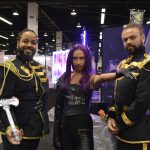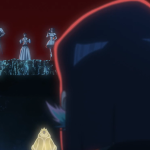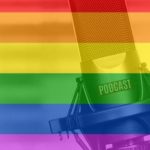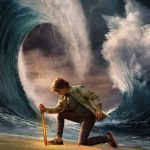“Love Me Bait Me” Director Discusses The Documentary Process And Queer Representation – Interview
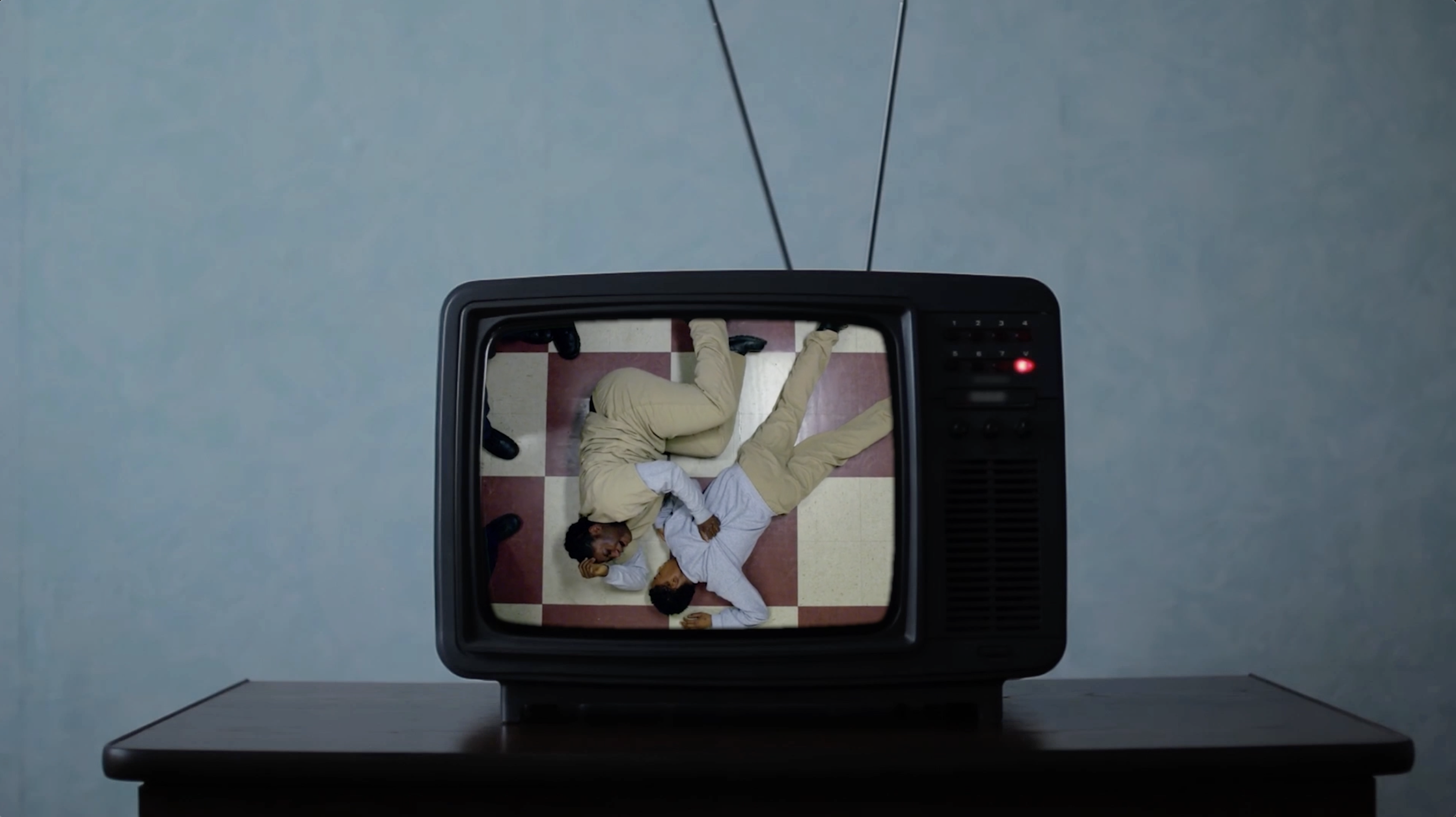
Love Me Bait Me director Rachel van der Bie provides an in-depth look into the making of the queer representation focused documentary.
The soon to be released documentary Love Me Bait Me is a thorough and essential examination of the past, present, and potential future of queer representation in media. The Geekiary sat down with director Rachel van der Bie to discuss the creation of the documentary and the assembly of the creative team in front of and behind the camera.
The Geekiary: What was your prior experience with media representation and documentary filmmaking prior to Love Me Bait Me?
Rachel van der Bie: I did not have any prior experience with documentary filmmaking. This was my first official project. It is kind of nice to think about future projects that could happen, you know, becoming a quote-on-quote documentary filmmaker wasn’t on my bingo card, so to speak. This was just born out of a passion and inspiration. This was the medium and form that it took.
As far as representation goes though, that’s inherent to the project. When I was younger, and about thirteen years old, that’s when I discovered my queerness for the first time. That was because of being on YouTube and finding videos from scenes from TV shows and movies of that time. This probably would have been mid-2000s, but also of course whatever had been produced up until that point, a lot of films and shows from the ‘90s. That was really central to my self-awareness. I hold that dear to my heart, so I can understand and relate to others who have a very similar experience where they saw the right scene and all of a sudden things started to click for them.
TG: As this documentary was born out of Lexa’s death, when did you decide that the documentary was the right way to showcase the history and importance of representation?
van der Bie: It’s funny, looking back. This would have been in 2016. Lexa’s death on broadcast television was that March. I wasn’t following along in real time, I got the referral from Margot [van der Bie] on the project, earlier, I would say mid that year, in summer maybe in the fall because we went to school together. She said, “This is a great show, you’d love it.” I didn’t know what happened in the third season, so it was a surprise to me watching episode 3×07 and was devastated.
It really, upon looking back, was triggering very similar feelings that I had had when I was in my early teens and so it felt very familiar. The difference being, now I’m in college and I identify as a feminist activist and I’m doing programming on the college campus. I was just in a different situation and so much had changed as far as the cultural climate, attitudes, and legislation regarding the LGBTQ+ community. It just felt like, “Okay, well, I have to do something about this.”
I just felt so moved emotionally and initially it was just going to attend an event with like-minded people. But then, when I found news about ClexaCon, which was the convention that also was inspired by Lexa’s death and all of the fan activism that happened afterwards, I wanted to go. When I was looking at who was invited to present or sit on panels and give these workshops, it just felt like a really great opportunity to record or speak with all of these people. Because when were we going to have another opportunity like this?
Around the election, certainly, similarly devastated by the results of November 2016, it all just kind of merged together at that point. I can’t remember exactly if it was right before or right after the election, but it was certainly around that time where it felt like, “Okay, we’ve got to do something.” I had such a personal connection to the content.
I also had dabbled with video cameras growing up in my early teens, there’s lots of videos on YouTube that I would post. So, the idea of working with cameras again was pretty fun. It kind of just went from there, realizing, “Well, all it takes is a couple of cameras.”
I had watched This Film Is Not Yet Rated, and the private investigation that they did of the MPAA in that film. It wasn’t done with the highest quality cameras, and I still got so much out of it. It really gave myself permission, it’s all about the conversation and what you get. Of course, I still cared about quality and all that, I got good advice from folks at my college. Being inspired by that documentary, certainly from a young age, in my brain, I knew this was a great way to do it.
TG: What was the process of assembling the production team and the subjects to interview on camera?
van der Bie: Naturally, the people that were invited to ClexaCon that first year, the inaugural convention was in March 2017, that certainly was sort of, those people were already chosen for me, if you will. It was just the process of going through that list and comparing different backgrounds and identities and experiences that these folks have.
Similarly, because I had always known, I love watching documentaries, and the documentaries that I had always really enjoyed, I was going to their Wikipedia pages and saying, “Wow, they interviewed over forty people. That’s incredible.” That kind of became the number for me and was like, “If I can get that many people together, that would be great.”
At some point, I knew this was only just the beginning. I think we interviewed ten people that first year and I thought I would try my luck doing that again the following year. So, Margot and I went again, in 2018, and I only conducted a couple of interviews then. We didn’t do any in our hotel room, it wasn’t the same setup. But that was where we met Erika [Lygren], our editor.
I had experience working at the queer feminist activist center on college campus, I was very familiar with tabling and having buttons and selling merchandise and giving out information and resources. So, I thought, “Well, let’s just become one of the other vendors,” and we did it under the Clexa Project name, and that’s how Erika found us. We did a few interviews at the table itself, but the quality got in the way. It was still a great way to meet people, and so that was how we met Erika.
In 2018, Margot and I moved to Portland from Chico, California. Portland, Oregon, and Erika also lived in Portland, Oregon at the same time, so it just felt like a perfect match. I knew we had all this content, but I didn’t have any editing experience. Of course, I would have loved to have edited them myself, but to be very realistic, it’s so helpful to have other people involved. Otherwise, things just kind of don’t always get to happen.
She started the work of compiling a lot of these interviews, and in that following year, 2019, Erika and I went back and did another round similar to the 2017 year. Maybe we did like ten more interviews, let’s say, in 2019 from Erika’s hotel room. That was fantastic. And again, it was just looking at who was invited to ClexaCon that year. So, by that point, we have over twenty interviews, give or take, and Erika again spending the next year compiling and trying to make connections and figure out what flow makes sense.
I think it was in late 2019, Bren Coombs, our producer, a producer on the film, found me on Twitter and offered help. That got the ball rolling, I really saw the value of having someone who had more experience than me, someone who could help me in the realm of fundraising and marketing.
So, Bren came on, and of course, the pandemic happened soon after. We had plans, and those had to shift. We had all kinds of plans, but by the end of 2020, we finally told ourselves, okay, we’ll just do a Kickstarter. We did that Kickstarter and we were able to raise over $10,000.
That is the reason why we were able to bring on Pau[lina Manrique] and Titus [Byron], the composer and animator. It became clear at some point, between conversations with Erika and I, we really wanted to have music that was compelling emotionally. We really saw the value in that. And also animation because there were a lot of statistics. We had some pretty big dreams and we were able to do all of them. We got some two-dimensional character animation in there, we were able to get some in.
With that Kickstarter being successful, Pau was selected through a process, we put out a call for composers on Twitter. We interviewed a bunch of people, compared folks, and made the hard decision. Pau was just the best in the world, Pau lives in Mexico City.
Titus, I had already become aware of their work through a mutual contact in Portland. I found their Instagram and just loved their style of animation so I kind of already made up my mind that I was going to approach Titus at some point, but I need to have money. I’m not going to ask anyone to do work for free. The Kickstarter allowed us to do that, we were able to put this little tiny team together and then it just kind of went from there.
We were able to include more folks throughout the process thanks to Pau, thanks to another connection that I had in Chico, being able to license some music from a musician in Chico. That felt really meaningful to include as much as we could in this film, queer artists, trans artists, in the making of this documentary. It’s kind of a no-brainer that what one of our major themes is you need to hire the queer and trans community in the making of your stories, and that obviously applies to the making of this documentary. It was really important that we were able to do that, and grassroots organizing really came through. We were able to get enough resources together to bring folks together. That’s kind of the gist of that story.
TG: What was the most surprising thing you learned in the process of creating Love Me Bait Me?
van der Bie: I surprised myself in a lot of different ways, I think one of them being that I had always kind of seen myself as not a creative person. Which is kind of strange because I was really into art growing up, but the story I told myself was I’m just really good at looking at something else and copying it. But in terms of actually creating something brand new, I had always struggled with that concept in terms of my imagination. I just always kind of told myself, “Well you’re just really good at maybe collecting information or reorganizing it in a different way. So, this documentary makes sense, all these brilliant people will tell me all their brilliant things. Then I’ll just work behind the scenes and put it all together in some shape or form.”
I certainly had the story I told myself about what kind of person I was, I was a more of a left-brained person if you will. But over time, I started to have more of an interest in…it’s fun creating a documentary about queer representation and then every TV show and movie you watch, you’re like, “Oh my gosh, this should go in the film. How does this relate?” Everything is interconnected, and still not seeing representation that I really wanted.
For me, on a personal level, wanting to see representation that reflected the relationship that I was in with Margot in particular and just never seeing it. And so that kind of for me inspired a desire to potentially look into storytelling myself. What would it look like to write a story of my own? And it turns out that it’s really hard, the creative process is really hard, and it was really frustrating, but I’ve learned so much and I really learned that actually everyone is capable of creativity.
We all have our own unique blocks and barriers that keep us from that creative side, but we all have it. It’s innate, and there’s also a very spiritual component to it for me, it’s very empowering. I surprised myself, I think, with the fact that I, one, would be interested in creating something of my own. I really wasn’t anticipating that.
In the aftermath of that, for me, it really helped me build a lot of empathy for other creatives, writers, producers, directors, all of these folks who are creating all of these stories in the mainstream or independently, and realizing, “Oh my gosh, it really is so much easier to tear something down than it actually is to create something from the ground up. Although the film was born from a lot of anger and devastation about why would you do this to our community, and this desire to have an honest, well-researched critique, I really started to build a lot of empathy for just how nuanced the process is. It isn’t black and white, and as easy as I thought that it would be. I’m grateful for that too, it also makes the conversation easier to have with these folks and find common ground in that way. A lot of personal growth, for sure.
TG: Finally, what are your current favorite TV shows and movies that you feel are doing representation really well?
van der Bie: I personally love the TV show Motherland: Fort Salem. I love witchy content and queer content and when I first discovered this show, I was just so amazed by the representation on that show. In my opinion, it was so well done. Of course, it’s an interesting show because it does involve the idea of these witches being the military for the United States, and that as a concept is tricky. It’s one of those things where I don’t know if I really want to get behind supporting war and military, but of course, the story itself is so nuanced and that’s kind of the point. That aside, first impressions are like, “I don’t know, I don’t know about this,” but the way they do it, it’s just fantastic and I really love that. It’s so nuanced and so well done.
I’m such a sucker for the movie Bottoms, I just think that movie is so funny. I just really enjoy the raw, kind of pushing the envelope, in terms of humor, not having everything, as far as queer representation goes, really polished. I really appreciated that movie, it’s just so funny to me, I love that movie.
Those two definitely stick out to me… I watch a lot of queer content. I kind of like everything. One of the things we talk about in the film, or we bring attention to, is period films or period dramas, and specifically the whiteness of it all, but I love a good period drama, I’m not going to lie. I don’t know why, maybe it has a lot to do with history and a fascination for how people lived a hundred, two hundred years ago, and the queerness that intersects with that, I think. It’s also validating, for me, just that fact that queer and trans folks have lived and existed forever. Anytime I see something that validates that.
Growing up, I will say, tried and true, my favorites are anything written by Sarah Waters, Fingersmith and Tipping the Velvet were really instrumental for me growing up. Especially compared to what was available at the time, for me, they were just really well-written, complex stories and positive. I still feel really inspired by those pieces to this day and try to find ways to integrate those themes into stories that I’m interested in now.
–
The team behind Love Me Bait Me is in the process of putting together a newsletter to share regular updates about the film.
Until then, to find out more about film screenings near you, you can follow their Instagram or visit their website.
Author: Jessica Wolff
Jessica Wolff is a graduate of Drexel University with a BS in Film/Video. She has a passion for entertainment and representation in entertainment. She currently resides outside of Washington, DC.
Help support independent journalism. Subscribe to our Patreon.
Copyright © The Geekiary
Do not copy our content in whole to other websites. If you are reading this anywhere besides TheGeekiary.com, it has been stolen.Read our



